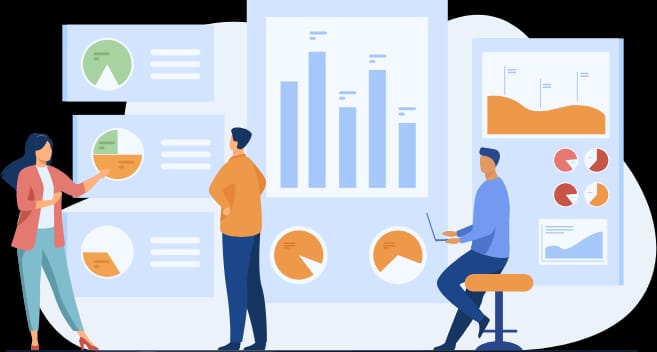How Retail POS Analytics Can Help You Make More Informed Decisions'

As a business owner, you need more than just numbers and reports to keep your business thriving. You need facts and figures that can tell you what you need to know about your business. One of the most critical pieces of information you’ll want to know is how your customers are feeling. Do they enjoy shopping at your store? What kind of product do they prefer? How often do they come back? This article will help you understand how retail analytics of POS can help with those decisions.
What is Retail Analytics of POS?
Retail POS analytics. Given the domino effect, as more businesses invest in cloud technology, the economy has begun to take effect too.is the process of analysing data to better understand retail sales and operations. The goal of retail analytics is to improve decision making by providing insights into customer behaviour, product performance, store operations, and marketing effectiveness.
POS analytics can be used to answer questions such as:
- What are the best-selling products?
- What are the most popular shopping times?
- How do promotions affect sales?
- Which stores are the most profitable?
- What is the customer mix for each store?
- What are the trends in customer spending?
- What is the ideal inventory level for each store?
POS analytics for retail typically relies on data from point-of-sale systems, loyalty programs, customer surveys, and other sources. This data is then analysed using statistical techniques such as regression analysis and cluster analysis. The results of the analysis can be used to improve decision making in a variety of areas including product assortment, pricing, promotions, store layout, and labour scheduling.
How POS Analytics Helps?
POS analytics can help you understand what is happening in your store, so that you can make more informed decisions. By tracking sales data, you can see which products are selling well and which are not. You can also track customer behaviour, to see how they interact with your store and what their needs are. This information can be used to improve your store layout, product mix, and marketing efforts. By understanding your customers better, you can provide them with the products and services they want, when they want it. This will improve your bottom line and keep your customers coming back.
Benefits of Retail POS Analytics
POS analytics can help you understand your customers better and make more informed decisions about your business. By tracking customer behaviour, you can learn what they like and do not like, what motivates them to buy, and how often they purchase from you. This information can be used to improve your marketing strategies, product offerings, and overall business operations. In addition to understanding your customers, retail analytics can also help you optimize your store layout and design. By analysing customer traffic patterns, you can identify which areas of the store are being used the most and make changes accordingly. This can help you improve the customer experience and increase sales. Finally, retail POS analytics can also help you reduce costs and improve profitability. By understanding where you are losing money and where you could be saving money, you can make changes to your operations that will save you money in the long run. Overall, it is a powerful tool that can help you make more informed decisions about your business. By understanding your customers better and reducing costs, you can improve your bottom line.
Disadvantages of Retail POS Analytics
There are a few potential disadvantages to retail POS analytics that should be considered before implementing it in your business. First, it can be time-consuming to set up and maintain, requiring specialized staff and software. Second, because retail analytics relies on data collected from customers, there is the potential for privacy concerns. Finally, the analytics may not be able to provide accurate results if the data is not of high quality.
What to Consider Before Making Decisions Based on Data
In order to make the most informed decision possible, there are a few key things you should take into consideration before basing your decision entirely on data. First and foremost, you need to ensure that the data you’re using is accurate and up-to-date. There is no use making decisions based on information that isn’t accurate, as this can lead to suboptimal results. Secondly, you need to consider the context in which the data was collected. This is important because it can impact the accuracy of the data itself. For example, if data was collected during a time of high sales volume, it may not be representative of typical sales patterns and could lead to inaccurate conclusions. Thirdly, you need to think about what other factors may be impacting the results of your analysis. This is important to consider because sometimes data can be misinterpreted and lead to incorrect decisions being made. For example, if you’re looking at sales data and trying to determine why there was a decrease in sales last month, there could be a number of different reasons unrelated to your product or service that could be responsible for the decline. Making informed decisions based on data is essential for any business owner or manager. By taking into consideration the factors mentioned above, you can help ensure that you’re making the best possible decision for your business.
Conclusion
Retail POS analytics is a powerful tool that can help you make more informed decisions about your business. By understanding your customers’ behaviour and preferences, you can improve your marketing strategies, product selection, and overall store operations. Implementing retail analytics can be daunting, but the rewards are well worth it. With the right data in hand, you can take your business to the next level. Let’s Try IDZLink POS can help to maximize your sales in the retail business. IDZLink POS is a cloud-based point of sale system that offers businesses a complete solution for managing their sales and inventory.